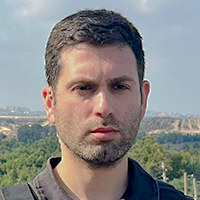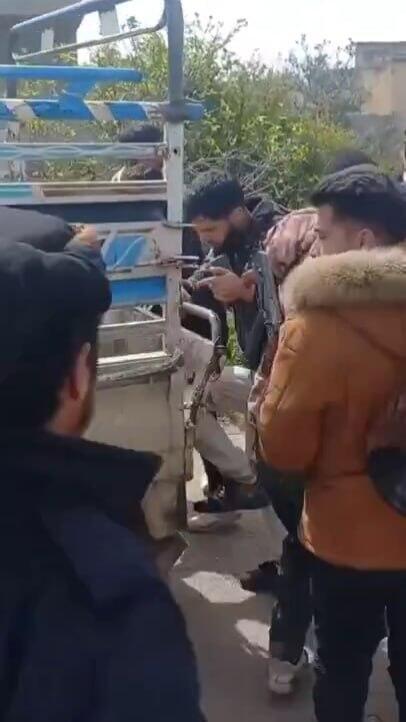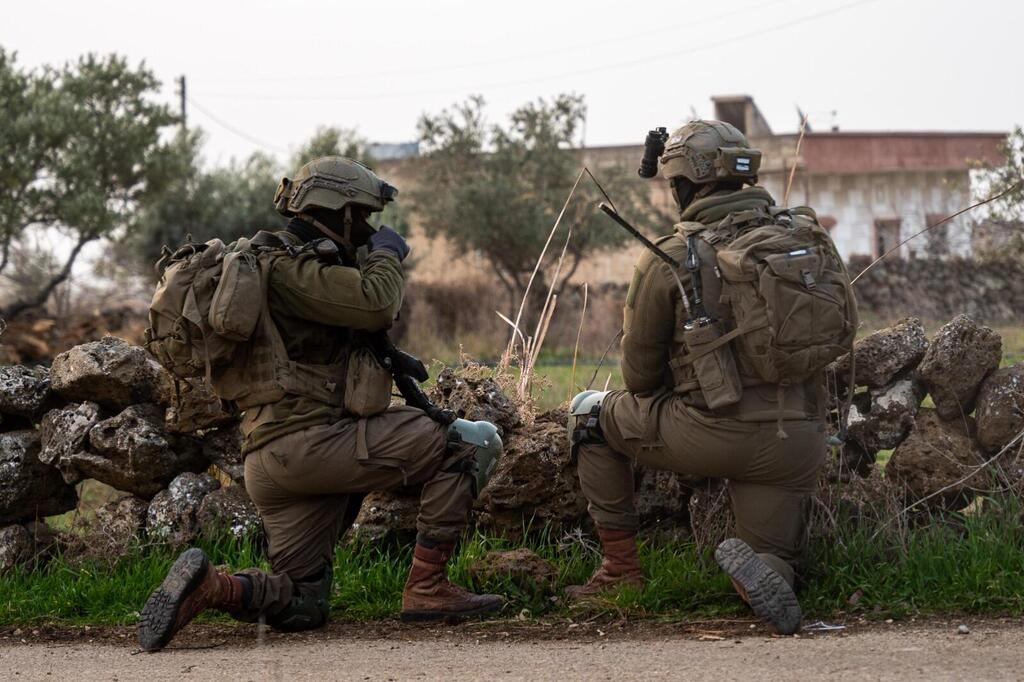The most significant incident in the Syrian Golan Heights since the fall of the Assad regime four months ago and the takeover of several areas beyond the border by Israeli forces took place Tuesday morning: terrorists opened fire on Israeli soldiers in the Golan from just 330 yards away and were neutralized by airstrikes. The Northern Command described the event as a “turning point” in the already tense region.
IDF attacks in Syria
Infantry soldiers from the newly formed unit within the Bashan Division, which oversees the Syrian border, were patrolling openly on the eastern, more distant side of the rugged Wadi al-Ruqqad, near its junction with the Yarmouk River in the southern corner of the Syrian Golan, close to the border triangle with Jordan.
A group of five to eight armed Syrians, who had not been previously identified by Israeli intelligence, emerged from the village of al-Kuya near the Jordanian border. The village, located approximately 3 miles from the border, has not yet been subject to search or disarmament operations by Israeli forces. The armed men positioned themselves on the outskirts of the village and opened fire at the Golan reconnaissance unit soldiers, who returned fire.
Get the Ynetnews app on your smartphone: Google Play: https://bit.ly/4eJ37pE | Apple App Store: https://bit.ly/3ZL7iNv
According to an investigation into the incident, the details of which are being revealed here for the first time, the gunfire struck close to the unit, but miraculously, no injuries were reported. In parallel, the 890th Paratroopers Battalion, responsible for the area, deployed reinforcements, fired mortars to isolate the area, and tanks provided cover for the infantry soldiers. The Bashan Division’s operations center activated a "Zik" UAV from the Air Force, which identified the terrorists and carried out precise strikes. Hits were confirmed, and according to Syrian reports, at least nine terrorists were killed, with no casualties on the Israeli side.
In response to the incident, a situation assessment was held on Tuesday by the Northern Command, and changes in operational patterns in the area are expected. The forces had no specific warning about the gunfire directed at them, but the encounter pattern and the possibility of an IED scenario are always considered in cross-border operations.
The southern Syrian Golan Heights, where the incident occurred, is considered more dangerous than the central and northern parts of the Golan for two main reasons. First, the area’s topography is more challenging for operational control, with deep valleys creating numerous blind spots for observation and multiple infiltration routes, unlike the plateau areas in other parts of the Golan. Second, the local Syrian population in the area is considered to be more Islamist in nature and previously hosted an extremist ISIS faction over the past decade, which made several attempts to attack Israeli forces.
The military is currently completing the establishment of outposts in the Syrian Golan but has not yet reached the second line of hills farther east. Suspicious movements are occasionally observed in the abandoned eastern outposts. Representatives of the al-Julani regime rarely visit the area, and the Air Force frequently strikes weapons depots and armaments in the more distant parts of the Syrian Golan and south of Damascus on an almost weekly basis.
“This is exactly why we decided to take preemptive measures and deploy in the buffer zone, to keep such threats away from the border so that they encounter Israeli soldiers first,” a military source explained. “As a result, the Golan has been returning to prosperity in recent weeks. Tourism is flourishing, hiking sites are open and crowded as summer and the holidays approach, and our intention is to ensure it stays that way.”






